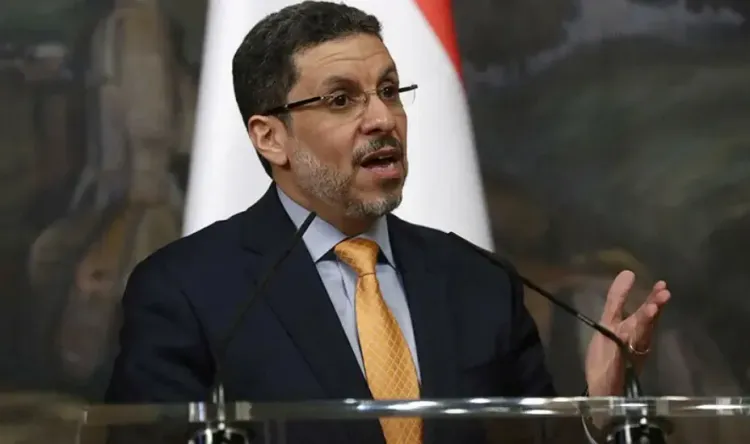Why Did Yemeni PM Resign Amid Rising Political Tensions?

Synopsis
Key Takeaways
- Ahmed Awad Bin Mubarak resigns as Prime Minister of Yemen.
- Resignation due to constitutional constraints and reform obstacles.
- Significant financial savings achieved during his tenure.
- Ongoing protests reflect public dissatisfaction with basic services.
- Potential cabinet reshuffle may follow his departure.
Aden (Yemen), May 4 (NationPress) Yemeni Prime Minister Ahmed Awad Bin Mubarak has tendered his resignation to the Presidential Leadership Council (PLC), attributing his decision to constitutional limitations and hurdles that obstructed his reform efforts.
In his resignation announcement on Saturday, the departing premier expressed that he encountered "numerous challenges," including his inability to reshuffle the government and leverage his constitutional authority to enact essential institutional reforms, as reported by the Xinhua news agency.
"I have just concluded a meeting with the Chairman of the Presidential Leadership Council, Rashad Al-Alimi, and submitted my resignation as Prime Minister," Bin Mubarak shared on X, while also revealing his resignation letter.
"I have been unable to exercise my constitutional powers or make the necessary decisions to reform government institutions or implement essential governmental changes," the letter stated.
"Despite the hurdles, we managed to achieve significant financial savings for the state," he indicated, highlighting over $133.5 million saved in electricity fuel procurement costs over the last year.
The Prime Minister's resignation arrives amid Yemen's ongoing struggles, including persistent conflicts with Houthi forces and economic turmoil.
Sources with knowledge of the situation noted that "the escalating tensions between Bin Mubarak and PLC leader Rashad Al-Alimi had reached a stalemate."
Before his departure, 18 Cabinet Ministers had signed a memorandum in April advocating for his removal, underscoring significant divisions within the internationally recognized government.
Recently, widespread protests erupted in Aden and other government-controlled regions, with demonstrators expressing their dissatisfaction over the collapse of essential services, such as electricity shortages, and the ongoing economic decline that has left millions struggling to fulfill their basic needs.
Bin Mubarak has served as Prime Minister since February 5, 2024.
Before taking up the premiership, Bin Mubarak held several prominent roles, including Foreign Minister and Ambassador to the US.
"The resignation highlights the deep governance challenges confronting Yemen's legitimate authorities," commented a senior government official on condition of anonymity.
"Internal discord has impeded an effective response to the country’s escalating crises."
Political analysts propose that this resignation could indicate an impending cabinet reshuffle as the PLC seeks to tackle governance failures and restore public trust amid Yemen's prolonged humanitarian crisis.
Since 2014, Yemen has been entrenched in civil conflict, following the Houthi forces seizing the capital Sanaa, which forced the internationally recognized government to shift its operations to Aden.









